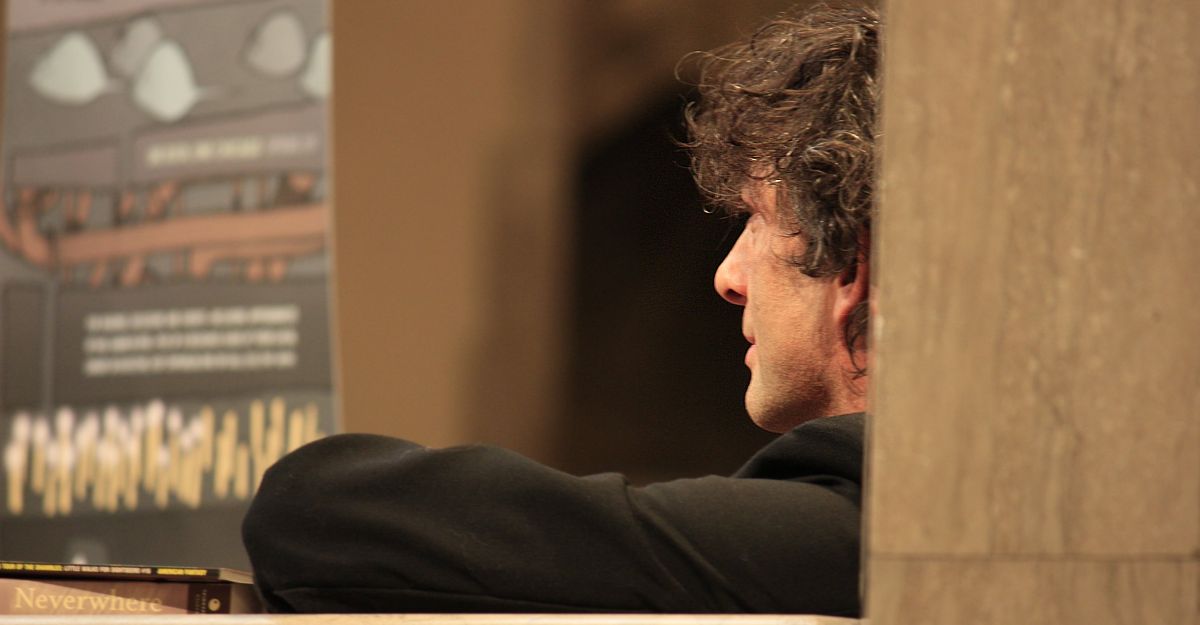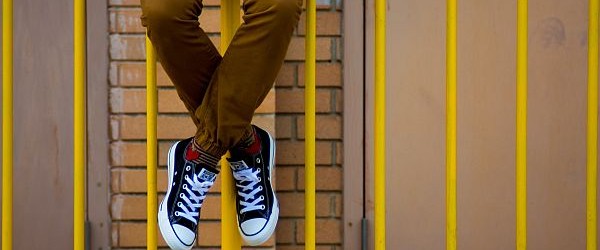My timeline is mutually horrified today by Lila Shapiro’s New York Magazine article on the rape allegations made by a number of women against the author Neil Gaiman (who denies any wrongdoing). Among these is Scarlett Pavlovich, who met Gaiman through a chance connection with his (now ex-) wife, the musician Amanda Palmer. Pavlovich’s initial friendship with Palmer was infused with the emotional intensity cultivated by celebrity. This intensity drew Pavlovich to Palmer, to Gaiman, and to the sexual violence she describes.
The interactions between Gaiman, Palmer, Pavlovich, and the couple’s young child are all outlined in Shapiro’s article. There is, though, another figure in the narrative whom the article does not name. Auckland city itself is a silent participant in the abuse that Pavlovich suffered. Auckland is not just the place where these things happen to have occurred: this is a story about Auckland. By introducing Auckland and making its role in what happened explicit, we will be able to understand something important about how violence against women works and how we could end it.
Gaiman and Palmer are famous millionaires. They live in two separate homes on Waiheke Island, the kind of thing only the extremely rich can even contemplate. They could easily hire a professional if they needed child carers, but in 2022 they instead entangled Pavlovich — a housing-insecure and unemployed lesbian in her early twenties with no family support — to be their nanny. While staying in Gaiman’s home, Pavlovich says the author pressured her into sex, despite her telling him no. Shortly afterwards, Palmer asked if she would move into the home to provide ongoing childcare. Pavlovich was in a desperate situation. The couple represented employment, housing, and security. Pavlovich had spent weeks early in the lockdown period sleeping on the beach, and didn’t want to have to go back to sleeping rough. She accepted their offer. Were it not for the housing crisis, she might not have. The sexually violent behaviour that she alleges to have followed is stomach-turning.
This narrative is not exceptional in the post-Weinstein, post-Epstein era. We are familiar with how rich, famous men leverage their social and financial power to abuse women. Pavlovich and Gaiman represent the two poles of that system. One is a man with enough wealth to disappear the consequences of his behaviour. The other is a woman with not enough wealth to ensure even her own survival. Another woman in Shapiro’s article, Caroline, alleges that Gaiman evicted her from her home on his property after she ended their coercive sexual relationship. Gaiman was able to behave in the way Pavlovich describes because she depended on him for everything. Her job, house, and future were all contingent on Gaiman’s approval.
I want us to denaturalise this situation. Women do not enter the world economically dependent on men. Women live the way we do because we have been made to live this way. In her landmark feminist text Marxism and the Oppression of Women, Lise Vogel argues that misogyny is the consequence of a social order that makes women socially and economically dependent on our families and husbands. We are excluded from the workforce and isolated in the family home to do domestic labour and care work. The class interests motivating misogyny are simple. When I teach Vogel to my students, I ask them rhetorically — could the average man afford to hire his wife? A live-in chef, cleaner, sexual partner, child carer, chauffeur, teacher, on call 24/7? By making women into this class of unpaid domestic workers, capitalist economic policy cuts state spending on welfare and subsidises the wages of male workers, keeping pay low and profits high. In this context, women are easy objects of violence. The only cost is the social subordination of women — and we, not bosses, pay that cost.
When Lise Vogel sleeps at night, nightmare visions of Auckland are probably what haunt her. This city is a deranged experiment in deprivation. Pavlovich’s life story of family harm from a young age, total lack of family support, unemployment, and struggling to find and keep secure housing, is all typical for working-class Aucklanders. With the dawn of the neoliberal age, Labour and National governments alike have deliberately maintained policies that ensured people live lives like hers. New Zealand made sure that there was no stable employment available, with our Reserve Bank noting that employment was too high before taking steps to drive it down. New Zealand made sure that Pavlovich didn’t have access to state housing that she could just live in securely, with emergency housing application denials doubling in the last five years. New Zealand made sure that she wouldn’t even have access to benefits that would have been high enough to pay her rent. All this drives down wages and welfare spending, keeping profits high.
Auckland is a city where people sleep in doorways and alleys on Queen Street every night and undeveloped public housing projects rot away, while the palaces of the rich stack up higher in Remuera, Epsom, and Waiheke Island. Every concession that New Zealand has made to the profits of private landlords pushed Scarlett Pavlovich into Gaiman’s arms. She had nowhere else to go. None of the women like her do.
The horrifying violence and abuse that Scarlett Pavlovich describes is not the result of an individual man’s monstrosity. It isn’t even the result of some innate, absolving, universal “human nature”. Scarlett Pavlovich endured what she endured because capitalism in New Zealand worked hard to make sure that she did. A rich man can rape a poor woman in a bathtub and, in some way, get some twisted satisfaction from doing so. But the rich — all of the rich, every last one — directly financially benefit from having built a world in which poor women have no choice but to submit to being raped. This misogynist violence is the premise of capitalist society, and ending that violence will require us to end capitalism.
Image: ninniane



